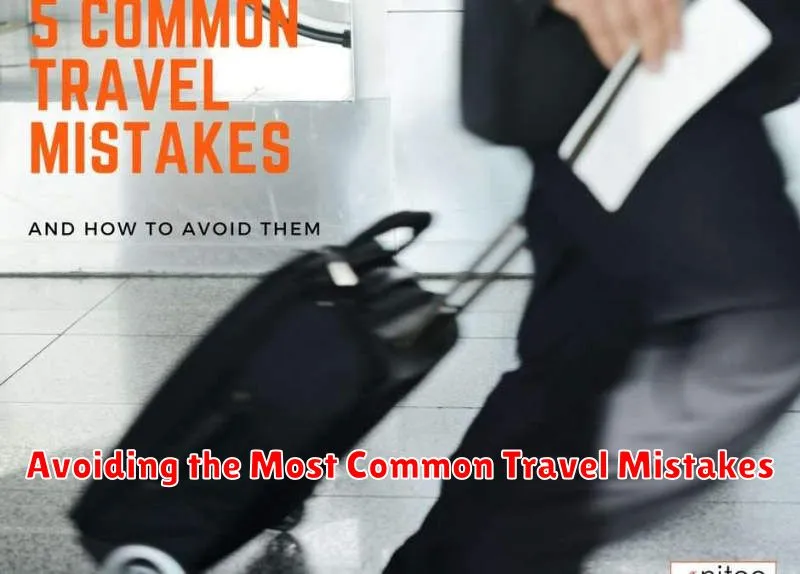Traveling can be an enriching and exciting experience, but it can also be fraught with unexpected challenges. Avoiding common travel mistakes is crucial for a smooth and enjoyable trip. From booking flights and accommodations to packing and navigating a foreign country, careful planning and preparation can prevent unnecessary stress and save you valuable time and money. This article will guide you through the most frequent travel blunders and provide practical tips on how to avoid them, ensuring your next adventure is truly unforgettable.
Whether you are a seasoned globetrotter or a first-time traveler, being aware of the most common travel mistakes can greatly enhance your travel experience. Many travelers fall prey to easily avoidable pitfalls, such as overpacking, neglecting travel insurance, or failing to research their destination adequately. By understanding these common errors and implementing the advice provided, you can minimize potential problems and maximize your enjoyment, allowing you to focus on creating lasting memories. Learn how to avoid travel mistakes and embark on your journey with confidence and peace of mind.
Why Planning Matters
Careful planning is essential for a smooth and enjoyable trip. It allows you to anticipate potential problems and develop solutions before they disrupt your travel experience.
Budgeting appropriately prevents overspending and ensures you can afford all desired activities. Knowing your spending limits beforehand helps you make informed decisions about accommodation, transportation, and entertainment.
Planning also enables you to maximize your time. By researching destinations and creating an itinerary, you can efficiently explore key attractions and avoid wasting precious vacation time figuring out logistics on the spot. This pre-trip research also allows you to identify and book tours, accommodations, or transportation in advance, especially during peak season.
Finally, planning contributes significantly to reducing stress. A well-structured itinerary provides a sense of control and minimizes the likelihood of unexpected hiccups ruining your travel experience.
Common First-Time Travel Errors
First-time travelers often encounter avoidable pitfalls due to lack of experience. Overpacking is a frequent issue, leading to baggage fees and difficulty navigating public transport. Packing cubes and a pre-trip clothing audit can help mitigate this.
Another common mistake is poor budgeting. Failing to account for all expenses, such as meals, activities, and transportation, can lead to financial strain. Creating a detailed budget beforehand and tracking spending during the trip is crucial.
Lack of research about the destination is another area where first-timers often fall short. Not understanding local customs, transportation systems, or visa requirements can create unnecessary challenges. Thorough pre-trip research can prevent these issues.
Finally, failing to confirm bookings for flights, accommodation, and tours can result in stressful surprises upon arrival. Double-checking all reservations and having copies of confirmations readily available is essential for a smooth travel experience.
Forgetting Travel Insurance
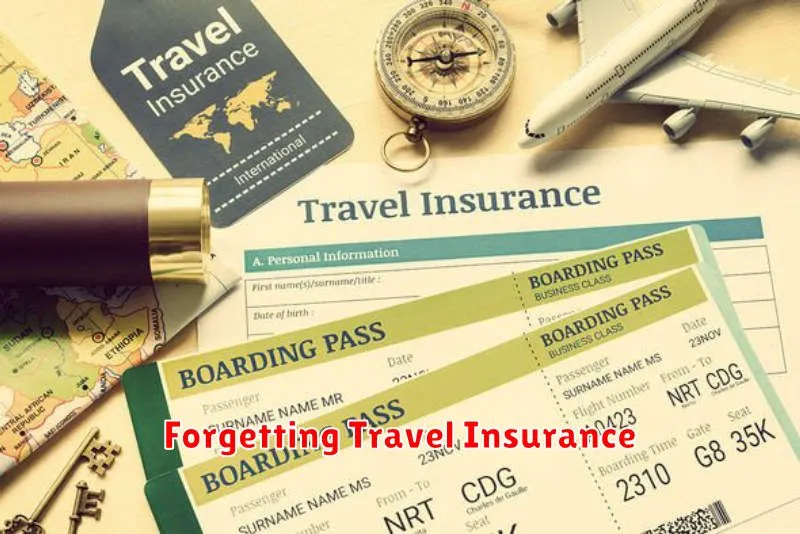
One of the most common, and potentially costly, travel mistakes is neglecting to purchase travel insurance. Many travelers underestimate the importance of this crucial safeguard, viewing it as an unnecessary expense. However, the unexpected can, and does, happen. From lost luggage to medical emergencies, travel insurance provides a financial safety net against a range of unforeseen circumstances.
Consider the potential financial implications of a medical emergency abroad. Healthcare costs can be exorbitant, especially in developed countries. Without insurance, you could face crippling medical bills. Travel insurance can cover these expenses, providing peace of mind and protecting your finances.
Beyond medical coverage, travel insurance can also provide protection against lost or stolen luggage, trip cancellations due to unforeseen circumstances, and even emergency evacuations. The relatively small cost of a policy is a worthwhile investment compared to the potential financial burden of these unfortunate events.
Overpacking and Baggage Issues
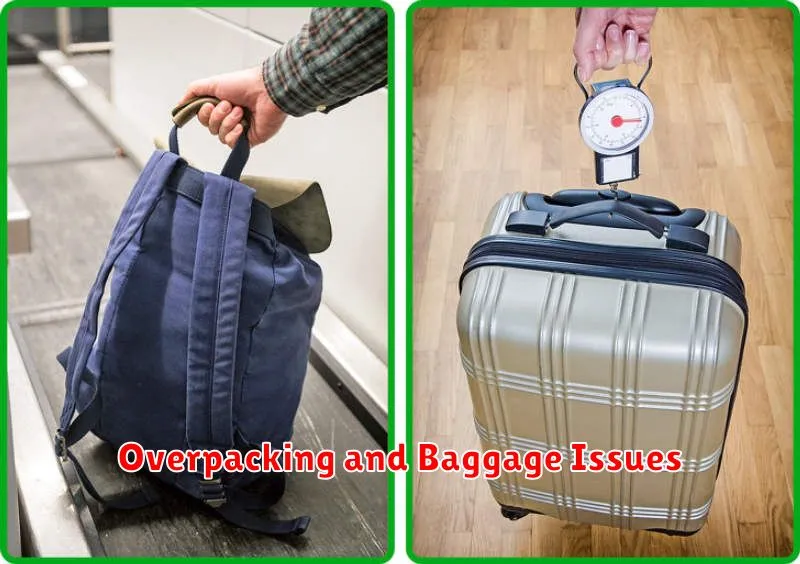
One of the most common travel mishaps is bringing too much. Overpacking leads to increased baggage fees, difficulty navigating transportation, and the general inconvenience of lugging around excess weight. It also increases the risk of lost or delayed luggage.
Pack light. Make a list and stick to it. Choose versatile clothing items that can be mixed and matched. Consider doing laundry during your trip to reduce the number of clothes you need to pack. Utilize packing cubes or compression bags to maximize space and organization within your luggage.
Understand airline baggage restrictions. Check your airline’s specific size and weight limits for both carry-on and checked baggage to avoid unexpected fees at the airport. Be aware of restrictions on prohibited items.
Label your luggage clearly. Use both external and internal tags with your name, address, and contact information. This will help identify your bag if it gets lost.
Not Checking Visa Requirements
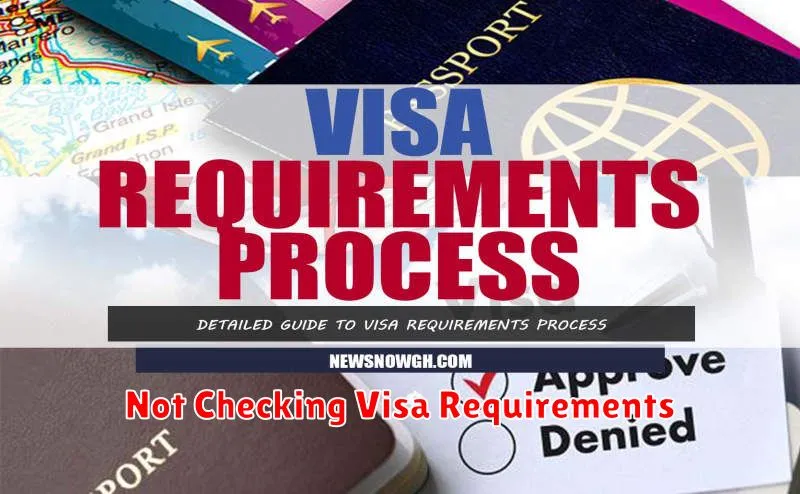
One of the most crucial aspects of travel planning often overlooked is verifying visa requirements. Failing to do so can lead to significant disruptions, including denied boarding and cancelled trips. Visa regulations vary greatly depending on your nationality and destination.
Before booking anything, dedicate time to research the specific visa requirements for your trip. This involves confirming whether you need a visa at all, the type of visa required (tourist, business, etc.), and the necessary application process. Processing times can also vary significantly, so factor this into your planning.
Resources such as your destination country’s embassy or consulate website, as well as official government travel advisories, are excellent places to obtain accurate and up-to-date information. Double-checking these requirements well in advance will prevent unnecessary stress and potential travel nightmares.
Ignoring Local Laws and Customs
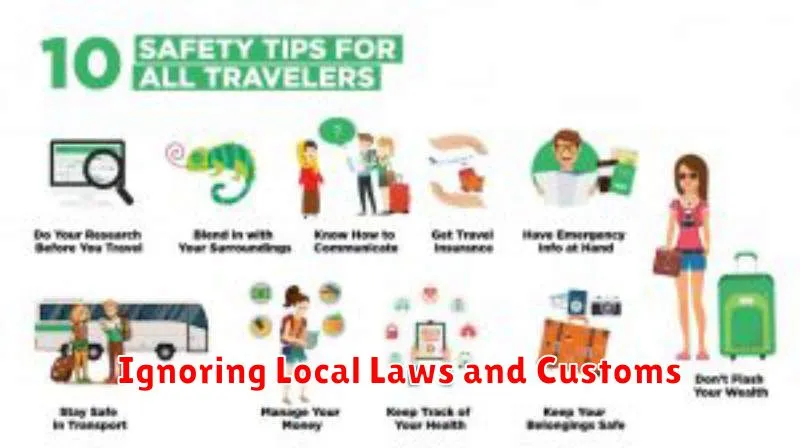
One of the most disrespectful and potentially problematic mistakes travelers make is ignoring local laws and customs. What might be perfectly acceptable in your home country could be a serious offense elsewhere. Researching the local laws and customs of your destination before you travel is crucial.
This includes understanding dress codes, social etiquette, and specific regulations regarding alcohol, photography, and public behavior. For example, some countries have strict laws regarding appropriate attire, particularly in religious sites. Ignoring these customs can not only cause offense but also lead to legal repercussions.
Familiarize yourself with basic phrases in the local language, such as “please” and “thank you.” This small effort demonstrates respect and can greatly enhance your travel experience. Being mindful of local customs not only avoids trouble but also enriches your understanding of the culture you are visiting.
Relying Too Much on Cash
While having some local currency on hand can be useful for smaller transactions or in areas with limited card acceptance, relying solely on cash can present several risks during travel. Carrying large sums of cash makes you a target for theft. Losing your cash stash could derail your entire trip.
Furthermore, exchanging currency often comes with unfavorable exchange rates and fees, eating into your travel budget. Using credit and debit cards generally provides better exchange rates and offers more security in case of fraudulent activity.
Consider using a combination of payment methods. Load a prepaid travel card for budgeting and everyday spending. Keep a small amount of local currency for tips, street vendors, and transportation. Use a credit card for larger purchases like accommodations and tours, ensuring you benefit from purchase protection and better exchange rates.
Skipping Safety Alerts from Authorities
One critical travel mistake is ignoring safety alerts issued by local authorities or your home country’s government. These alerts can provide crucial information about potential hazards, including extreme weather events, political instability, health outbreaks, and crime. Disregarding these warnings can put your safety and well-being at significant risk.
Staying informed about potential dangers is paramount to a safe trip. Check official government websites for travel advisories and alerts before and during your travels. Sign up for email or SMS notifications to receive real-time updates. Ignoring such advisories can lead to dangerous situations, from being caught in a natural disaster to facing security threats.
Pay close attention to the severity level of the alerts. Understand the difference between a “watch” and a “warning,” and adjust your plans accordingly. Don’t hesitate to change your itinerary or even cancel your trip if a serious warning is issued for your destination.

